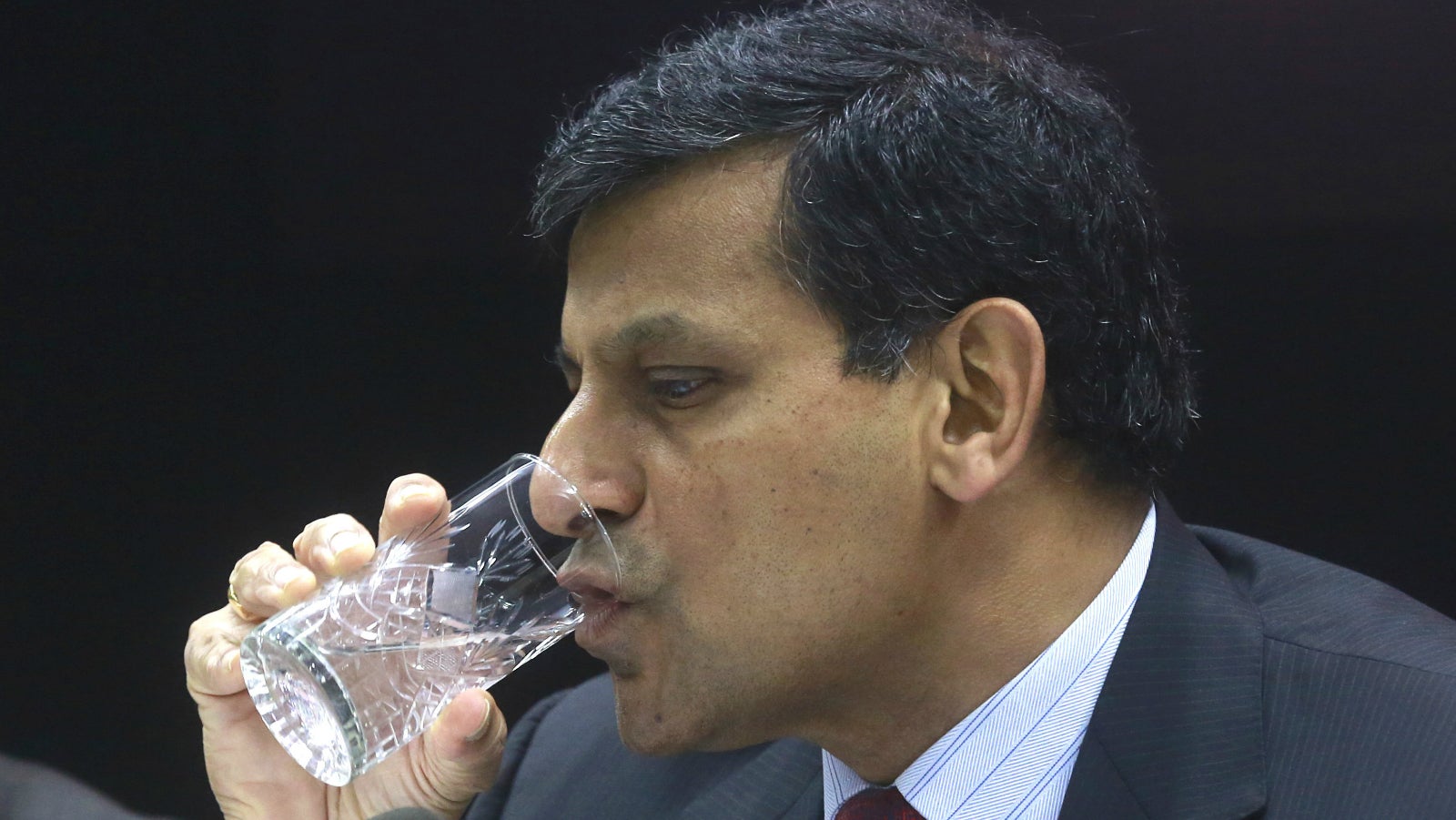“Good tea and good central bankers work best in hot water”
As head of Morgan Stanley’s emerging markets and its chief global strategist, Ruchir Sharma oversees assets worth over $20 billion. Much of his job involves assessing the economic prospects of various countries.


As head of Morgan Stanley’s emerging markets and its chief global strategist, Ruchir Sharma oversees assets worth over $20 billion. Much of his job involves assessing the economic prospects of various countries.
Earlier this month, Sharma’s book, The Rise and Fall of Nations: Forces of Change in the Post-Crisis World, hit the stands. The book spells out 10 rules in the post-2008 world for identifying the next winners and losers in the global economy.
Speaking to Quartz, Sharma touched upon a range of subjects covered in his book—from China’s manufacturing glut, to why India should take the lead in building the next big economic bloc involving Pakistan, Sri Lanka, and Bangladesh.
Some excerpts:
Q. What is The Rise and Fall of Nations all about?
I would say that the book talks about how the world was before the financial crisis of 2008… and how the world has changed after the crisis… Everything we believed of the world in the last decade has now been turned on its head. We are still feeling the aftershocks… of what happened in 2008, even though… (it) has been more than seven years in the rear view window.
Across the world, we are seeing a global revolt, a movement to throw the incumbent (leader) out. The incumbents are doing badly in more and more elections.
Q. What are the reasons for that?
One of them is the fact that this has been the weakest economic recovery in post-(World) War history. Two, a very large share of these gains have gone to the people at the top. Income inequality has really been a big issue… You have an increase… in the asset prices of only the rich.
The number of billionaires in the world today is like 2,000, even though the number just before the crisis was 1,000. So, even though this has not been a great period for economic activity, the rich still have gotten richer. That’s causing a real problem.
Q. Why is there such a shift towards deglobalisation?
One, before the crisis, the share of trade in global GDP consistently increased. The global GDP increased, but trade was rising much faster. But, after the crisis of 2008.. there has been a decrease in trade. The number of protectionist measures that countries have taken has gone up… People have turned much more inwards. Capital flows have dropped… Cross-border bank flows have declined…
Q. Investment in manufacturing is one of the ten rules you mention in the book. What do you think of Narendra Modi’s Make in India?
I think it is too early to say. What exactly these slogans (“Make in India”) are doing, where it is having an effect, I don’t know as yet. It is a much more difficult environment for manufacturing currently because we have a manufacturing glut in China…

Having said that… there are market share gains to be had. Because, some of the low-end manufacturing in China is now moving… to Vietnam, Bangladesh, and Cambodia. And not enough to come to countries such as India. It should theoretically happen. Why it is not happening? Is it too early? That I don’t know.
There is ample scope for market share gains. India should be focussing on that.
Q. A growing, young population is critical to any economy. Is India using this to its advantage?
Good demographics is a necessary but not sufficient condition for high economic growth… You can’t just be saying, “I have got the people. So that is it.” But demographics are particularly important now, because, across the world, we are seeing a decline in population—what we are calling the depopulation bomb.
Q. What is your assessment of BRICS today?
That era is over now. Nobody talks about it. BRICS just sounds so last decade. It is all passe. From an economic standpoint, their economies are all over the place.
The concept was flawed to start with. Last decade, every emerging market was doing well. These were the four largest and we just bracketed them. The whole BRICS idea was a marketing exercise.
Q. Staying on economic grouping, what does Brexit mean for India?
I think the impact is limited. Brexit is a political shock. It is not an economic shock. The fact is that the contribution of the UK and the EU to global growth has been very low because these economies have not been (doing) that well. But… when the Chinese currency had a free fall and there was a little panic in the global market, the impact on India was much more, compared to Brexit. So that should tell you where the risks lie.
Q. What do you think of this government’s inability to retain someone of Raghuram Rajan’s stature?
I have a quote in the book. Central bankers are like good tea. You only realise their worth when you are in hot water. Raghuram Rajan was much more valued when things were more panicky in 2013 and 2014. Today, when things are stabilised… you don’t realise the worth of him… Next time India faces something like this, possibly you will realise that.
Q. Within South Asia, which country now has huge potential and why?
It is hard for me to pick one. Bangladesh is doing very well on manufacturing exports. Sri Lanka’s geographic location gives it a very good advantage. In Pakistan, it is a bit of a comeback story. They were doing so poorly and affected by terrorism, but now… terrorist attacks are on the decline… It no longer is the most dangerous place on earth… India is the biggest. On a relative basis, India is still good.
Q. If these countries have such huge potential, shouldn’t they be thinking of better co-operation?
I wish there is… The region with the lowest intra-level trade is this region, and so I wish India would take many more initiatives to promote… inter-regional trade and co-operation here.